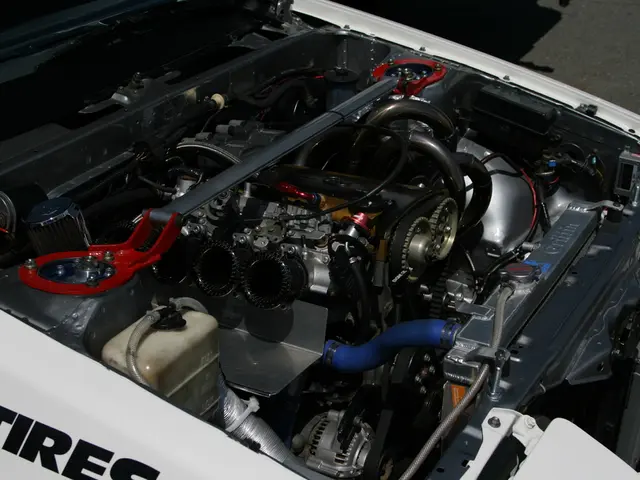Mandated automobile safety technologies in the EU may be deemed "irrational," "erratic," and potentially dangerous, experts caution.
New Car Safety Feature Faces Criticism
A new safety feature, the Driver Drowsiness and Attention Warning (DDAW) system, is being rolled out in the latest models of cars across Europe. However, this system has been met with criticism due to its intrusive alerts and potential for reducing overall safety benefits.
According to consumer editor at What Car?, Claire Evans, the DDAW systems can be "irritating, distracting, and sometimes unnecessary," leading to driver annoyance or complacency. In tests, the system's continuous beeps and visual alerts have become so annoying that drivers are likely to turn them off at the start of each journey.
Experts at What Car? have also raised concerns about the effectiveness of these systems. While they do improve safety by detecting drowsiness and warning drivers, their design and implementation sometimes lead to behavioral adaptations that may reduce their overall safety benefits. For example, pre-warnings can cause drivers to become over-reliant or complacent.
The DDAW system in the Chinese Leapmotor C10, a family SUV, has been criticized for its poor performance. In tests, the system issued three audio and visual warnings when the test driver was looking at the road ahead, but only went off twice during distracted driving maneuvers. As a result, the Leapmotor C10 earned a lowly one-star rating from What Car?.
Another Chinese SUV, the MG HS, also faced criticism for its DDAW system. The system provided two false alarms on the first lap, although it did issue alerts for all four distracted driving moves.
In contrast, the DDAW system in the Mazda CX-80, a premium model, worked seamlessly, providing warnings during every potentially dangerous maneuver. However, the system did not issue any warnings when the driver was concentrating on the road.
In response to these criticisms, What Car? has urged Euro NCAP to "penalise systems that are poorly integrated into cars instead of simply rewarding manufacturers for including the technology." Car safety organizations, including crash-test body Euro NCAP, have been called upon to introduce "more stringent testing of these systems" to ensure they are effective and not causing more harm than good.
Under the EU's 'New Vehicle General Safety Regulation', all new models from 7 July 2024 must have a host of standard-fit safety items, including DDAW systems. The Government is likely to apply the EU's regulations to British-sold motors to prevent higher costs of production being passed on to buyers, according to Sir Keir Starmer's Government.
Across Europe, the EU's GSR2 regulations have been introduced over a three-phase period, beginning in July 2022. All new models entering production must have all 19 mandatory safety features from 7 July 2024. Volvo, a pioneer for vehicle safety, introduced DDAW on its EX90 in 2022.
As the DDAW systems become more common in new cars, it is essential that manufacturers work harder to ensure they only intervene when there is a genuine risk of an accident and minimize the number of false alarms. Privacy-preserving drowsiness detection frameworks aim to improve accuracy while respecting privacy, showing ongoing efforts to enhance such systems technically.
Read also:
- Rapid Charging Stations for Electric Vehicles Avoiding Grid Overload
- Increasing Trend Downthe Globe: A Growing Number of Individuals Opt for Electric Vehicles Over Long Distances
- Electrical Contacts Market Expected to Reach a Value of 18.6 Billion Dollars by 2034
- "A high demand for your product in foreign markets signifies that you're manufacturing something significantly worthwhile."







